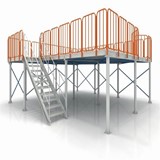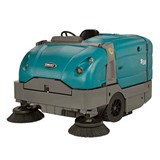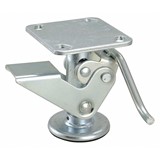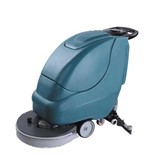Personalities differ and sometimes those personalities grate against each other like broken cogs. Plain old jealousy for another worker's looks, popularity or promotion can cause workplace tensions to boil. Conversely a simple lack of recognition can cause resentment to creep in. Worse, bad attitudes towards a co-worker's race, religion or sexuality can lead to real factory floor breakdowns. On a departmental level, gulfs can develop between sections over needs, goals or failures. Relationships can even break down over something as simple as poor English.
What happens if conflicts aren't resolved?
A worker operating in isolated discontent or under concealed duress is not only an unhappy worker, they're an unproductive worker. They're unfocussed and stressed and probably distracted by ways to find another job. As their performance declines, their health can slide with it leading to a sudden spate of sickies. As one link in a chain, the entire chain slows to their speed causing ripple effects across the entire floor. If the conflict involves more than a single worker, look out!
Can mediation help?
Yes, it can if you learn the skills required to be a good mediator. Mediation is about listening. It's also about watching those at the centre of the conflict to make sure they're also listening. Handled badly conflict resolution can be a lot of talking heads atop soap boxes with not the slightest interest in another point of view. They'll hear what they want to hear, no more. Your job as mediator is to make sure they hear what they need to hear. Be empathetic, yet objective towards both sides and try to reinforce any valid points made. The key is not to be judgemental in reaching a resolution that makes sense to all parties.
Are there other ways to resolve bad situations?
If you've tried getting warring workplace parties to see eye to eye, it can be a bun fight. If you believe a face-to-face resolution is unlikely, ask all parties to write their grievances down, anonymously if necessary. That way you avoid an ugly confrontation, equip yourself with all the facts, and operate from a position of relative strength when resolving the issue.
Are there ways to stop conflicts occurring?
There are. Your managers and supervisors should spend as much time on the factory floor as possible chatting to workers and watching behaviour, be that overtly or covertly. Often if a good relationship has been developed with individual workers, they'll voice concerns directly before they become a major problem. Or regular scrutiny of worker behaviour can allow problems to jump out if the usual banter fades away or smiles suddenly disappear. Get to know your staff. Make them feel empowered to confront you with grievances. They'll reward you with a more harmonious factory floor and a happier, more productive business.















